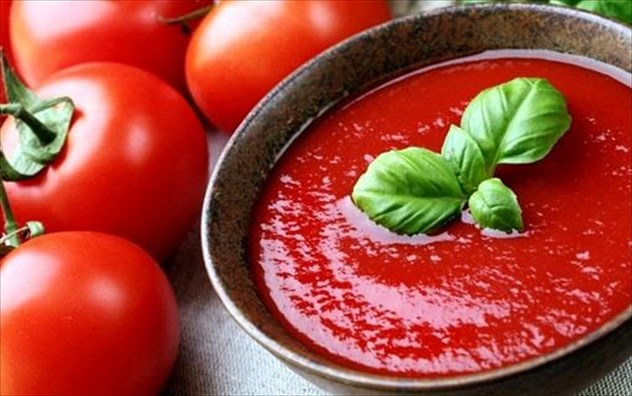Pictures: www.clickatlife.gr
Everybody knows that we would prefer fresh food over processed food or supplements. But it is not always obvious how to use fresh food in order to enjoy its beneficial properties.
Can we prepare a salad for the whole week? Which is better for our smoothie - fresh or frozen fruit? Which vegetables are better for us - steamed or boiled in water?
In general, the healthiest way to prepare each food varies. Heat, water, storage or exposure to air can make certain foods lose their nutritional properties.
Read a few tips:
Vegetables

Wrong: cooked in a microwave oven or boiled in water
Correct: steamed
The explanation: Regarding broccoli, steaming retains nutrients fighting cancer much better compared to other cooking methods, according to a study by the University of Illinois.
Sulforaphane, which has strong anti-cancer properties, is contained in large quantities in cruciferous vegetables such as broccoli, cauliflower, arugula, etc. The myrosinase enzyme is responsible for the release of this compound, but most cooking methods destroy it.
Steaming is a slower process and the temperature is lower, so that it cannot destroy myrosinase. You should steam broccoli for 3-4 minutes in order to preserve more nutrients.

Strawberries
Wrong: cutting them before eating
Correct: eating them whole
The explanation: according to a 2011 Brazilian study, eating strawberries whole provides 8-12% more vitamin C compared to cutting them. This is so, since light and oxygen destroy vitamin C. Keep strawberries whole in the fridge for more vitamin C - cooler temperatures preserve the vitamin, according to the same study.
Wine
Wrong: leave the bottle open in order for the wine to "breathe"
Correct: Consume the content of the bottle immediately after opening
The explanation: When a bottle of red wine stays open for a long time (for example, about 12 hours), the organic acids and polyphenols it contains start to decompose, according to a 2012 Chinese study. If you leave an open bottle of wine overnight, the wine will lose its anti-depression properties, as well as other benefits such as increasing testosterone and aiding heart health.
Tomatoes

Wrong: eating them raw
Correct: cooking them
The explanation: tomatoes are associated with a reduced risk of stroke and prostate cancer in men, as well as with better brain health at an older age.
Heating tomatoes significantly increases the levels of lycopene, which in turn increases the levels of antioxidants. A recent study in the British Journal of Nutrition confirmed that people eating mainly raw foods are deficient in lycopene. For more nutrients, you should sauté tomatoes in some olive oil. Lycopene is fat-soluble, which means that it needs to bind to a fat in order for the body to absorb it properly.

Frozen products
Wrong: avoiding them
Correct: preferring them
The explanation: Most people believe that only fresh products are good for us, but this is not true. British researchers have confirmed that in two of three cases, frozen fruit and vegetables have higher levels of antioxidants, such as polyphenols, vitamin C, and beta-carotene, compared to fresh fruit and vegetables. Food nutrients start changing or decomposing with time. You should prefer food which has been frozen at the right moment and has thus preserved the necessary nutrients intact more than fresh products which have already lost them.